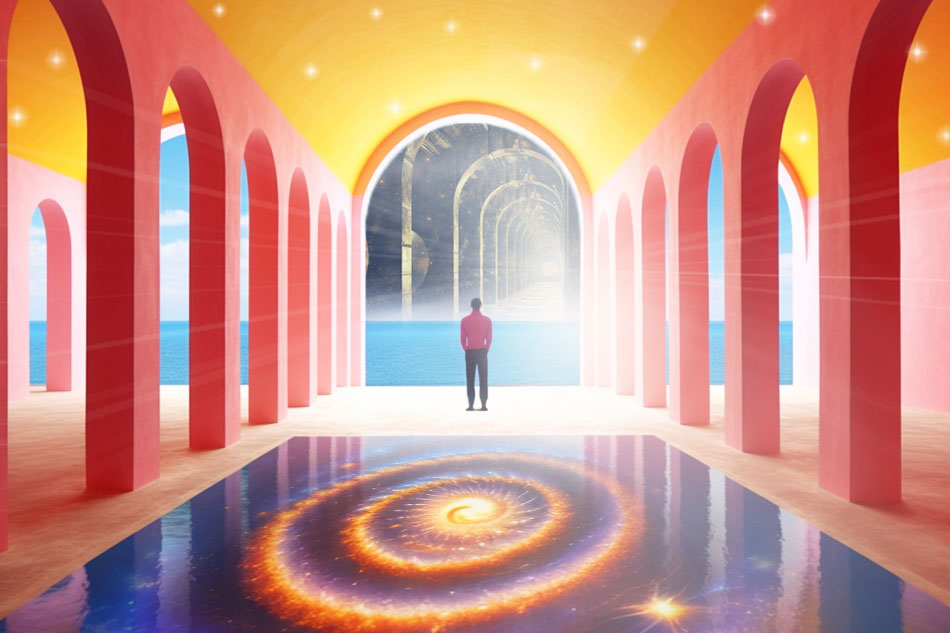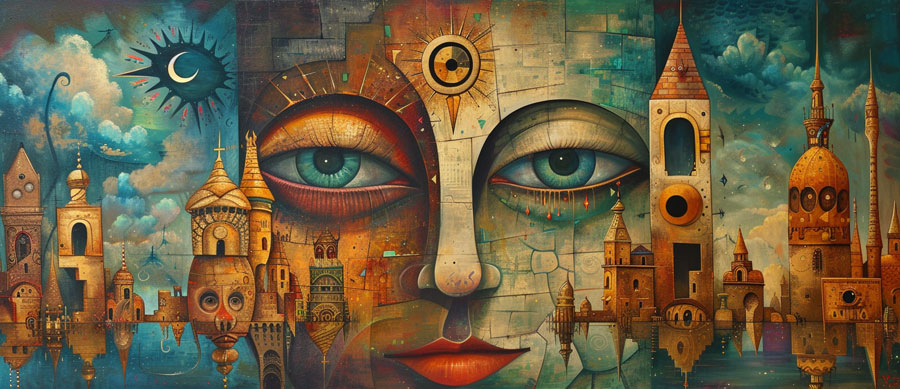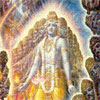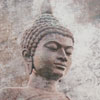Reincarnation: Answering Unanswered Questions
 by Irving S. Cooper
by Irving S. Cooper
A century or so ago when, as the outcome of the struggle between science and theology, unreasoning faith in tradition and dogma began to give way to research and reason, a furious questioning of life and of the world arose. Nothing was exempt. The current ideas of God and the soul, of revelation and destiny, were torn to fragments as thoroughly as every speculative conception of the phenomenal world. It was a period of intellectual revolution, and the thinkers of the race, exulting in their freedom, determined to destroy utterly every falsehood that had weighed them down. Unfortunately, in the hurry of destruction, they cast aside many a truth.
Materialism was the inevitable outcome of such a reaction, and at first it did seem able to answer satisfactorily the questions propounded. People hopefully persuaded themselves that all things and all events in the universe, including the workings of the mind, could easily and logically be explained in terms of matter. It was believed that there was nothing in the universe but force and matter and the laws governing them. It was joyfully affirmed that the old beliefs, which had kept civilization so long in confinement, were dead forever. God was a myth, the soul a fancy, destiny the grinding of the world-machine, religion a tissue of childish legends interwoven with more or less wholesome ethics. And so, on the morning of this new intellectual day, rationalistic science overthrew its ancient antagonist, theology, and strode on to further conquests.
It was a period of resistless enthusiasm. A feverish thirst for exploration drove men on from discovery to discovery. It was felt that soon the last of Nature’s secrets would be known. Experiments in physics showed that Nature was synonymous with law; the curiosity of the chemist laid open the hidden structure of matter; the Darwinian theory of evolution revealed order and purpose in the complex realm of living things. In the crust of the layered earth was read the marvelous story of ages long since past; great telescopes gathered up the light-waves from giant nebulae and from millions of distant suns and cast them upon the photographic plate; the study and dissection of the human body gave rise to many sciences—anatomy, physiology, histology, embryology, psychology, medicine, and the like. The mastery of the world seemed near, and mankind was thrilled—with the omniscience of youth.
We have grown a little older since then, and though there is still enthusiasm, it is somewhat tempered by maturity. The first rough-and-hasty methods of research are slowly being replaced by more refined and skillful procedure. We are now engaged in going over the waste-heaps of ideas cast off during the last four centuries, taking the same minute care that is being bestowed upon tailings once discarded as valueless by the refiners of precious ore, and in the midst of the rubbish much of value is being found.
It is becoming evident also that some of our most prized treasures are only fool’s gold, glittering but worthless. Science has had to throw away theory after theory; religion, dogma after dogma; philosophy, speculation after speculation. Consequently, there is not a little uneasiness and anxious turning one to another asking what will be the outcome of it all. It has become evident that many of the old theories and dogmas are untenable, but what can be found to replace them? The search for knowledge has resolved itself into a complex series of questions, which, remaining unanswered, has bred uncertainty, and out of uncertainty restlessness has sprung. Materialism has been discarded, truly, but the religious thought of the new age is still groping its way to adequate expression.
Does God exist and is there a moral law at the heart of the universe? If so, why then is death everywhere, the weak overcome by the strong, the lesser preyed upon by the greater?
How lizard fed on ant, and snake on him,
And kite on both; and how the fish hawk robbed
The fish-tiger of that which it had seized;
The shrike chasing the bulbul, which did hunt
The jeweled butterflies; till everywhere
Each slew a slayer and in turn was slain,
Life living upon death. So the fair show
Veiled one vast, savage, grim conspiracy
Of mutual murder, from the worm to man,
Who himself kills his fellow . . .
If God exists why is there so much misery in the world, so much undeserved suffering, so many unearned gifts and opportunities? Why are strong men suddenly struck blind, innocent children scourged with disease, nursing mothers killed by some drunken fool speeding in an automobile? Must we agree with Mill that if there is a God either He does not care or else He is so powerless that He cannot change conditions? To speak of an inscrutable Providence does not solve our problem; it only affirms our ignorance.
In this world is right rewarded and wrong punished? Observation tells us that it is not. Many times the criminal goes free, the innocent is imprisoned. To mediocrity come rank and wealth, to real worth hardship and despair. Envy and malice hound ability to the grave; the hands of the populace applaud the successful trickster. The Churches, which yearn to help mankind, are slowly losing ground; the strongholds of vice are apparently becoming ever more strongly entrenched. Goodness in business is a handicap, we are told, for in the marketplace the saint is a failure and the gambler supreme. The Christ-like virtues are helpless in the grasp of might, and against our wills we must arm ourselves to protect our homes from ravage.
A little while ago a man was released from a prison after spending nearly a third of his life within its walls. He had been convicted on circumstantial evidence and, though protesting his innocence, was sentenced for life. Twenty years later the real criminal confessed to the crime on his deathbed, and the innocent man was released, a wreck physically, morally, and mentally, for such is the disgrace of our penal system. A minister of the Gospel, a man of deep feeling and wide sympathies, whose work brought him frequently into touch with released prisoners, met this man and tried to console him and to bring him back into touch with Christianity. He felt the weakness of words, so he simply put his hand on the shoulder of the man and told him to try to be patient and strong, to trust the loving Will of God and the Promise of Christ. The effect upon the prisoner was significant. He straightened up, his eyes blazing with the concentrated bitterness of twenty years of undeserved suffering, and in a voice hoarse from the deadly fluff of the jute-mill, asked these searching questions:
“Do you mean to tell me that it was God’s will that sent me to prison? If He is just and loving why didn’t He save me from such a fate? What had I done to deserve such suffering? I was an honest man and I loved and worked for my family. And then they sent me to that hell for a crime I didn’t commit. Was it God’s will that left my wife and two children to starve? Where are they now? I haven’t heard from them for years. They may be starving or dead or—worse. And look at me, a wreck—offal flung on the dung heap of civilization. And then you tell me that it was all the will of God! Get out! I want none of your God!”
And the minister went away a sorrowing man, for he had no way and no arguments whereby he could convince the released prisoner that God exists, and that He is good.
Religion tells us of a world to come, and would have us understand that there our wrongs will be recompensed, our sins forgiven, our ignorance dispelled. Through all the centuries men’s eyes have turned longingly to that world, and they have endured the trials of this for what has been promised hereafter. But if God created a world, apparently so wretchedly arranged as this, what hope have we, in the name of logic, to expect anything better in heaven? If there is little justice here, why more there?
If all souls are equal at birth why are human destinies so terribly unequal? Are we to fall back upon the hopeless doctrine of predestination and the elect? Why is not every soul given a chance to develop its powers? Is it all a matter of chance? Can we conceive of a divinely ordered universe in which such matters as human lives are left to the blind working of chance? Is it not significant that all other events in the physical universe are guided by natural law?
So far as this world is concerned, human equality is a myth, despite the orations of vote-seeking politicians. We are unequal physically, mentally, morally, and spiritually, while opportunity and limitation seem always to be playing a game of tag with our plans.
Some men have strong and healthy bodies; others are frail and diseased. Some have grace and physical refinement; others are gross and coarsely grained. Some have quick and capacious brains; others are dull and limited in thought. Think, too, how completely our standing in the world is affected by what we are physically. Equality? Equality is denied by every fact in Nature!
In one of our large cities, for many years there was to be seen a small handicapped man seated at the street corner on a piece of carpet. He was certainly over forty years of age, but had a body the size of a boy of ten, and his arms and legs were so twisted and distorted that it was unpleasant even to look at him. For years he had kept himself alive by selling pencils and papers, and the limits of his intellectual universe were bounded by the street crossing at which he sat. Contrast the limitations of his life—the physical suffering, the dim yearning for friendship, the colorless days, the narrow horizons—with the many opportunities and friends which have come to us. If we believe there is a divine Power, then that Power is responsible for this man’s destiny, either directly by placing a soul without stain in this crippled body, or indirectly by creating a world in which such tragedies can take place.
Why are there so many terrible inequalities in environment? One child is born in an Eskimo hut, doomed by its very birth to a life of the utmost narrowness. Another is born in the midst of an advanced civilization, with every educational and cultural advantage. One is born in the dark, foul room of a crowded tenement, reared in rags and taught in the gutter. Another is born in a home of refinement, reared in the best of surroundings and taught in an excellent school. One grows up to be a shambling beggar of alms, the other a leader of citizens and an honor to the State.
If there are souls and they are equal at birth why should there be this favoritism? Why is one wailing infant condemned by the very conditions of its birth to a life of misery and deprivation, and another to good fortune and endless opportunities? Is God’s love, mercy, or justice made manifest in this? Is there no law or purpose in the assignment of our respective destinies?
Why are there so many inequalities in opportunities? One man may work hard all his life and in the end, through some accident, become a charity patient in a dreary hospital or the inmate of a home. Another inherits a vast estate and possibly a title, has a yacht and several automobiles, travels widely and draws largely upon the luxuries of the world. He is an idler, a parasite, a useless member of society, but his hands are filled with treasure. Why should this be so, if not a sparrow falleth unknown? It is not correct to answer that it is all a matter of work and of intellect, for many bright men of industry have failed, and many fools have money constantly springing up under their fingertips.
Turn where we will, the world is full of inequalities, of startling contrasts, which are inexplicable in the light of current religious teaching. We feel instinctively that there must be Divinity at the back of all things and all events, but we are unable to prove it by pointing to the conditions of the world. On the contrary, moral chaos seems more in evidence than moral order. It is any wonder that the ranks of the churchless are increasing year by year?
It is true that Christianity has endeavored to solve these problems, usually along two lines—original sin and the will of God—but neither answer satisfies the modern mind. The first answer fails because we have become convinced that Adam never existed, and that therefore there could have been no original sin. The second answer fails because it makes God directly responsible for all the suffering in the world, especially that which arises from birth conditions, and we rather shrink from worshiping such a Being as that!
These problems of religion are the despair of the modern world. They seem impossible to answer, and yet unanswered they make ineffective the teachings of religion, and materialize the hopes of men. A master key is needed to solve them, to make real again the life of the spirit, to make strong the faltering trust in the goodness of God and the purpose of life. In reincarnation that master key is found.
 The Meaning Of Reincarnation
The Meaning Of Reincarnation
The evolution of consciousness takes place by a process of ensoulment of the evolving physical forms. This process of repeated embodiment is known as reincarnation. It is a universal process, and prevails not only in the human kingdom but also throughout the whole of Nature. Whenever we find a living form, the consciousness of that form is also evolving, using temporarily for that purpose the physical form in order that it may gain physical experience. Reincarnation is the means by which hosts of evolving lives, of all degrees of development, are brought into association with evolving physical forms of all degrees of complexity.
For the gaining of experience, it is obvious that the evolution of the consciousness must match the evolution of the form, and through the automatic processes of Nature this is always the case. Thus by means of the instrumentality of the human body is made manifest a highly-developed type of consciousness not found in the lower kingdoms, because the human body with its marvelous brain structure is far more adapted to the needs of such a consciousness than is the relatively undeveloped brain of, say, such an animal as a mule.
Is it not evident from a study of Nature that in the great plan of things little attention is paid to the preservation of forms? Death is universal; everywhere physical bodies are being sacrificed to keep other physical bodies alive. Mineral forms are broken up to furnish food for plants; plants are sacrificed to animals; animals to man. From the physical point of view Nature is a house of death, and this very fact has been not only the despair of philosophy, but also the chief argument of science against the religious belief in God.
In the light of reincarnation it is recognized that the reason Nature cares so little for physical bodies is that they are really of minor importance. Their one function is to serve the growing consciousness as a means for gaining experience. Consciousness, with its power of memory, is the important thing, and consciousness is carefully preserved. Nature destroys forms lavishly because the consciousness using those forms cannot die, and as all memories and faculties are retained by the consciousness after the death of the physical bodies, nothing of value is, in reality, lost.
We may define reincarnation, then, by saying that it is a plan whereby imperishable conscious beings are supplied with physical bodies appropriate to their stage of growth, and through which they can come in contact with the lessons of physical life.
From the standpoint of reincarnation the earth—and quite likely the whole universe—is a great school. It was brought into existence for educational purposes, and the whole plan of evolution is designed to give just the amount and kind of experience which is needed to stimulate the growth of an almost infinite series of living things, of which the known physical kingdoms form only a small part.
Just as a child goes to school day after day, learning lessons, gathering experience and passing from grade to grade, so do we in our greater soul-life come here to earth many times, learning lessons, gathering experience, and passing from one social grade to another.
We commenced our human evolution as savages, because our moral and intellectual powers had hardly begun to stir. After a few lives amid such primitive conditions, we developed some slight trace of mental faculty and moral response, and were then born into some rudimentary type of civilization. Much suffering marked our various incarnations because we were willful, passionate, and sometimes cruel; but as the centuries advanced and we reaped many an evil harvest grown from evil seed of our own sowing, the voice of conscience—which is only the summarized memory of past experience—became more insistent and we began to refrain slightly from wrongdoing. As incarnation followed incarnation in rather rapid succession, we grew intellectually and morally through contact with the people about us, through the discipline of the law, and through the very pressure of physical existence. We were still ignorant folk, able to perform only unskilled labor, but nevertheless life on earth taught us slowly how to become something better, as it does every other human being. Life after life passed, each with its joys and sorrows, its opportunities and its difficulties, its successes and its failures, until we became skilled artisans. Here we learned of a higher standard of living, and slowly began to think, instead of constantly being swayed by unreasoning feelings and prejudices.
Gradually, as the lives on earth followed one another, for human evolution is painfully slow, we spent a longer time between incarnations away from earth in the different conditions of the unseen world. As a result, our mental faculties unfolded more rapidly, our moral perceptions increased, and our spirituality began to awaken. Many of us are a little past this level of evolution now, and because of the enormous amount of experience we have gained during other lives on earth we are developing into thinkers and occupy a relatively important position in the social scale. Some of our fellow-pupils are more advanced than we and are acknowledged by the world as the leaders of civilization, either by the splendor of their intellectual powers, the ability they display as statesmen, the beauty of their moral character, or the kindness of their spiritual insight.
In this there is no favoritism; it is only a matter of growth. The level they have reached we ourselves shall some day attain, if we only take advantage of our opportunities. They are more advanced and have greater power, because their evolutionary development started at an earlier period than did ours. We do not cry “favoritism” because in a school some pupils are in the upper classes while others are in the lower. It is all a matter of time, for after a while the pupils in the lower classes will themselves be in the higher. The same plan is followed in the World-School; ahead of us are “older” souls, behind us “younger” souls, the procession is endless, for while millions pass through the various classes one by one and eventually graduate, there are always other millions treading in their footsteps. In this there is no injustice but only a definite educational scheme.
So, in the light of reincarnation, we may picture humanity as marching up a giant stairway, the lower part of which can be seen emerging from the twilight of the beginning of things, the upper part vanishing into the glory of Divinity. How long the stairway is we do not know, but this is really not important. The important thing to realize is that we are standing now upon one of the steps and that the position we hold in the procession marks definitely our stage in growth. Such a realization ought to be an inspiration to us, for then we know that the great men and women of the world tell us in their persons and achievements what we with effort may become.
We are always the same individualities, although we may, during any one incarnation, take birth in a masculine body, and in another in a feminine body. This is necessary in order to balance and round out our development. Is it not noticeable that in the Christ-like characters of history there is a singular and exquisite blending of the masculine and feminine virtues?
In each incarnation we have a different physical body, a different name, and may have different souls acting as parents, but these changes do not in the slightest imperil our individuality. Our minds are not drawn at birth, as some philosophers think, from a great ocean of consciousness, nor at death do we lose the sense of personal existence. If this were really the case, reincarnation would be meaningless, and evolution the cruel sport of some transcendent Being.
As souls we are sexless, but our physical bodies are given sex by the plan of evolution, in order that there might be social groups, homes, family responsibilities, dependent children, sacrifices of personal pleasure, joys of affectionate relationships, contacts of different temperaments, for all these have enormous educational value.
We have been given physical bodies needing food, clothing, shelter, because through the efforts put forth to secure these things for ourselves and for others, the whole complex fabric of civilization has been woven, and the physical, moral, and mental powers of humanity have been stimulated to activity. When outer circumstances are such that we are forced to think and forced to work in order to live and succeed, our growth is the most rapid. We are most favored when life is most difficult.
To a great extent we have been left to solve our own social, political, and religious problems, and some people have advanced this as an argument to prove that there is no over-watching spiritual Power. But surely modern educational methods have demonstrated that the best way to awaken initiative, intellectual power, and ability to act with skill, is to give the children who are being taught a chance to exercise their faculties. To tell them everything and explain everything may develop the memory and the power of imitation, but it leaves the child hopelessly weak in other ways. What is true of children is also true of the pupils in the World-School, and if we only used enough common sense to apply the principles of sound pedagogy to the circumstances of daily life, we should find an adequate and helpful explanation of why we are left to learn through our mistakes. We have indeed been helped by the spiritual Teachers of the world far more often than we realize—were not the great religions of the world founded by Them? —but nevertheless, it is true that as a general rule mankind has been left to find its pathway alone. In no other way probably could the lessons of the world have been so thoroughly learned by mankind, and civilization brought to the point where it is realized that, in order to endure, society must be built upon a solid foundation of Brotherhood.
Reincarnation does not mean that the human soul can be reborn in an animal body. This belief is to be found in the myths of primitive peoples, in popular Hinduism and Buddhism, and even in the writings of Plato, but it is obviously a superstition and not a fact. To think of a human being, endowed with keen sensibilities, moral perception, and intellectual power, as being reborn after death in the body of an amoral and unintelligent animal, is certainly the abyss of illogic and could serve no moral or evolutionary process whatsoever in the universe. Every process of Nature has always been found to have a definite purpose, and reincarnation is no exception to the rule.
Nor does reincarnation necessarily imply that we are reborn immediately after death, although in rare cases this may happen. A series of investigations into the past lives of some two hundred and fifty people, which was laboriously carried out a few years ago, showed that while the period between death and the next succeeding birth may, in the case of an undeveloped soul, be exceedingly short, yet a highly-evolved soul may remain away from earth for several centuries. It is said that the average period between incarnations for an intelligent man or woman is in the neighborhood of five hundred years, although the variations in this interval are so great, because of a multitude of causes, that it is impossible to state an average universally applicable.
Many people, when their attention is first drawn to reincarnation, dislike the idea immensely. They have not the slightest desire to be reborn, and so, without the least attempt to consider the matter, dismiss the idea as foolish. Mere dislike, however, disproves nothing. Indeed, most new truths are disliked. Do we not recall the storm of ridicule and the vigor of anathema, which greeted the idea of evolution? There is no opposition so intense as that which is aroused by new ideas. A hasty rejection of reincarnation, therefore, may be thoroughly human, but it does not disprove its truth. The idea of reincarnation improves upon acquaintance, for usually our dislike is due, not to the central idea itself, but to some misconception concerning it that we have assumed to be true.
Our opposition to reincarnation arises largely because existence on earth is not easy. We are not really opposed to reincarnation merely as a process of return to earth, although we think we are, but to the associated thought that if we are reborn we must go through the trials of earth-life again. Our natural shrinking from this is the real cause of our opposition to reincarnation. We seldom look at life from the standpoint of its opportunities for growth, but nearly always measure it according to its power to cater to our desire for pleasure, idleness, position, honors, and amusements. Because we are oftentimes denied these coveted things, which are of no educational value, and given instead hardships, labor, sorrows, failures, and problems which teach us most quickly, we are violently opposed to any repetition of the process. How swiftly our opposition to reincarnation would fade away if we were guaranteed, upon our return to earth, the granting of all our desires!
If we will only remember, however, that the very experiences which are most difficult to bear teach us the greatest lessons of life, and that every pain we suffer, every hardship we endure, every failure which carries us downwards to defeat, means in the end more power to achieve, we shall look upon reincarnation with different eyes. If we think only of personal pleasure, reincarnation may be as uncomfortable to contemplate as a number of years of hard study in a school, but if we think of our usefulness to the world and the happiness we can give to others, then the thought of reincarnation fills us with enthusiasm and the will to attain. Further it should not be forgotten that much of the pain and suffering of human existence are due to our disregard of certain moral principles, and that when we learn to cooperate with the Law of Action and Reaction the result will always bring happiness, whereas disregard of it entails suffering and misery.
Excerpt from Reincarnation: The Hope Of The World – pub.1917
See Part II here.
Posted in Other Topics, Reincarnationwith comments disabled.





